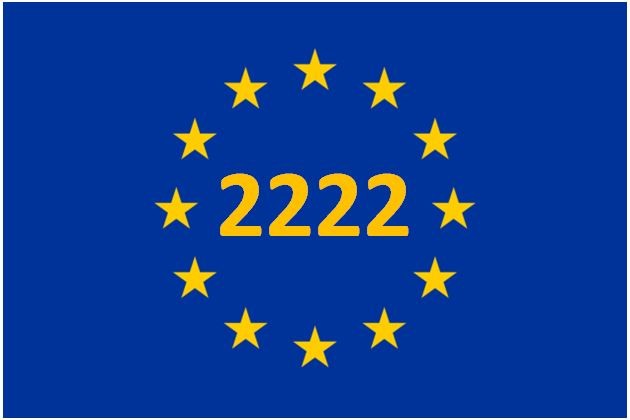
European Standardisation of the in-hospital ‘Cardiac Arrest Call’ Number 2222
The European Resuscitation Council, the European Board of Anaesthesiology and the European Society of Anaesthesiology have today issued a joint statement calling upon European hospitals all to use the same internal telephone number (2222) to summon help when one of their patients has a cardiac arrest
A recent survey has shown that 76% of Europe an hospitals use a telephone to call the resuscitation team but at least 105 different numbers are used, ranging from 19 to 25445. The commonest number reported to be used is 2222. One study in Denmark showed that 74 hospitals used 41 different numbers, and 50.5% of the staff could not remember the number to call in their own hospital.
If nursing and medical staff do not instinctively know the emergency number it delays the arrival of resuscitation teams. Miscommunication involving the cardiac arrest number has been shown to occur in almost 1 in 10 patient safety incidents at cardiac arrests.
The Chairman of the European Resuscitation Council, Professor Maaret Castren from Helsinki, has said “standardising the European cardiac arrest call number is an important patient safety issue
because an increasing number of nursing and medical staff move between hospitals as well as around Europe. The great variety of numbers can lead to delays in summoning assistance”.
President of the European Board of Anaesthesiology (EBA), Dr Carmel Abela from Malta, commented: “Some European countries that have already changed their hospitals’ number to 2222 have found it to be a quick, low cost, and effective measure. Currently inside hospitals in Europe, there is no single standard emergency telephone number for cardiac arrests, unlike the standard emergency telephone number 112 used out throughout Europe outside hospitals.”
President of the European Society of Anaesthesiology (ESA), Dr Zeev Goldik from Israel said “because there is such a variety of numbers currently used, it suggests that the choice of number was
probably made in hospitals locally. Therefore, it should also be possible for hospitals locally to make a new decision, with patient safety in mind, to standardise their own number to 2222. Any hospitals wishing to do this may find the action guidance from the National Patient Safety Agency and NSS Health Facilities Scotland 5 useful.”
All these professional groups are now working to standardise the telephone number used to summon the resuscitation teams throughout all hospitals in Europe. Martin Bromiley, Chair of the Clinical Human Factors Group (CHFG) commented that “Standardisation has been shown to be an effective mechanism for reducing human error in complex processes or situations. The CHFG fully supports this Patient Safety initiative and encourages all European Hospitals to standardise their ‘Cardiac Arrest Call’ telephone number to 2222.”
It is hoped that this change will avoid the confusion that can arise when staff move from one hospital to another within their own countries and, increasingly, around Europe. It should also ensure that all healthcare professionals are clear what the ‘cardiac arrest call’ number is, regardless of where they are working in Europe, thereby increasing patient safety. The European Resuscitation Council and the European Board of Anaesthesiology have issued the following Patient Safety Recommendation advising standardisation throughout Europe to the number 2222.


